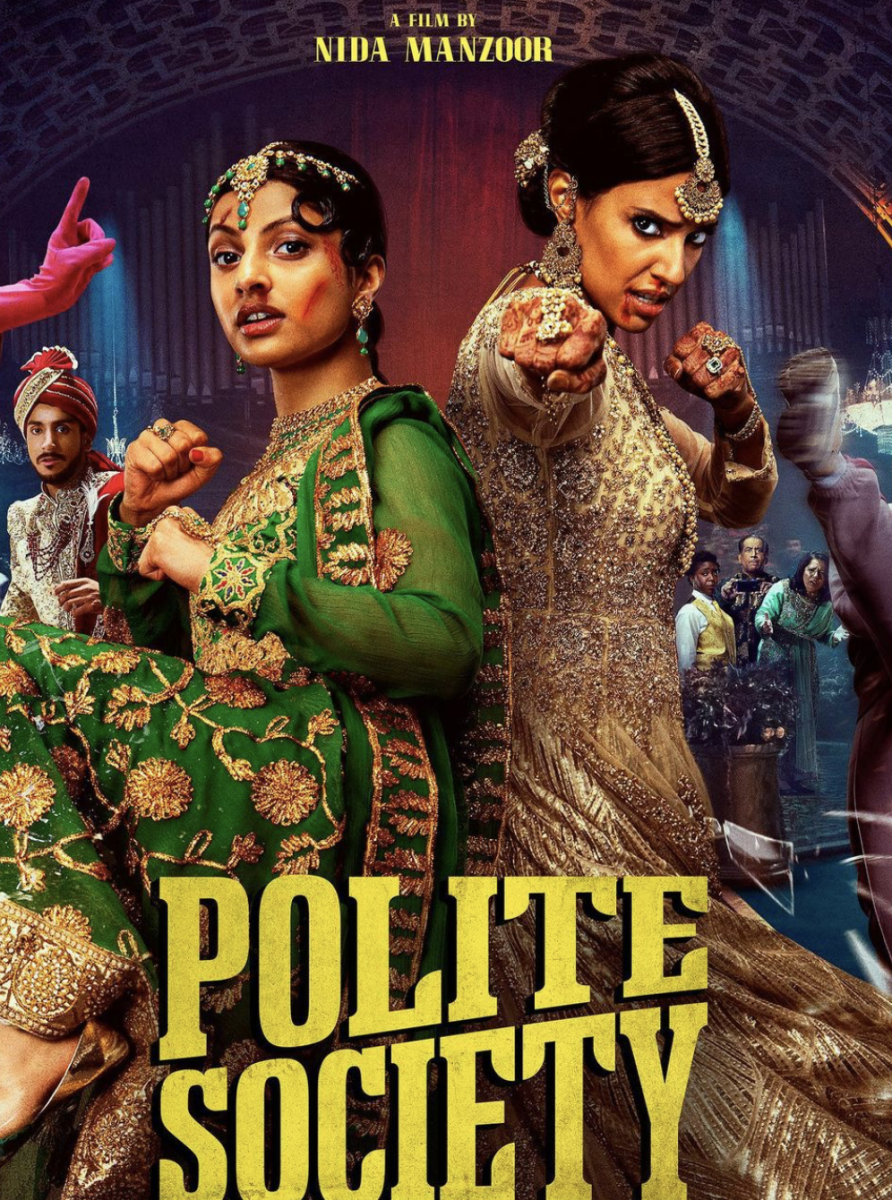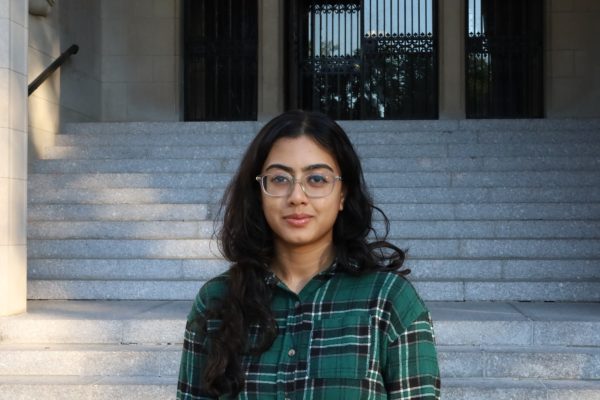Since I was a child, the sound of classical Bollywood songs has always been comforting and nostalgic. “Main Agar Kahoon” and “Koi Mil Gaya” served as part of the soundtracks that accompanied every family trip and picnic, and I had basically memorized the script to movies like “Kal Ho Na Ho” and “Kuch Kuch Hota Hai.” As a South Asian kid growing up with immigrant parents, it felt like having a foot in two different worlds. While I loved movies growing up like “The Diary of a Wimpy Kid” series and “Home Alone,” it was also nice to have movies that presented plots differently and where the main character often broke out into catchy songs. The movie “Polite Society” bridges the gap between the two worlds expertly.
“Polite Society” is a story presented in five chapters about Ria Khan, a teenage girl aspiring to become a stunt woman under the name “The Fury,” who makes martial arts videos with the help of her older sister Lena in a channel called “Khan-fu” (seriously how awesome is that channel name?). Lena is most likely depressed and listless after dropping out of art school, a decision that makes her “a brave girl” in the eyes of her parents. She wanders around the streets in her pajamas, smoking and eating a whole chicken while hiding from disapproving aunties; in other words, she is a relatable icon. The Khans are a middle-class Muslim Pakistani family in England and are presented with the nuance and care of one by Director Nida Manzoor.
After an invite to a pretentious Eid Soirée by Raheela, the queen of her circle who has a rich son named Salim whois a doctor who helps sick mothers and babies and is the most eligible bachelor in the neighborhood, Lena is swept into a short romance which becomes an engagement with plans of relocating to Singapore following the wedding. Ria watches in horror as her sister is transformed into a cardigan-wearing fiancee and decides that something is seriously wrong with Raheela and Salim, especially when they are overly interested about Lena’s fertility and strong womb.
“Polite Society” is a movie that combines elements of action movies and South Asian girlhood. There are elements of “Scott Pilgrim vs. the World” and Bollywood songs like “Gulabhi Ankhen.” It is refreshing to see a Muslim family whose connection to their faith is just that — a connection to faith. Ria and Lena’s parents are hilarious, a bit traditional, but well-meaning. I giggle every time I hear Ria’s dad describe his daughter Lena’s marriage in terms of the economy where she is “outsourcing this responsibility to her parents for the best possible match.” Ria’s mom and her scarf when meeting with the other aunties is similarly relatable and funny and the backhanded insults towards her daughters from the other aunties to her daughters are deliciously petty: “Mashallah, at least they are pretty.” In what other movie would there be waxing presented as a torture method by Raheela to get Ria to stop interfering in Lena and Salim’s wedding? The fights in the movie are also coordinated impressively. For example, the battle between both sisters, dubbed “Khan vs. Khan,” is relatable to anyone who has siblings and the epic fight in Lena’s wedding where both sisters fight in beautiful and heavy wedding lehengas is a delight. “Polite Society” isn’t a perfect movie and it has its flaws, but it is very fun.
More significantly, the message of “Polite Society” relates to confronting the pressures of the society around you. Ria’s ambition of becoming a stunt woman is laughed at and not taken seriously. She is seen as a silly child with a wild imagination, even though she is the only one who realizes early on what is going on with Salim and Raheela. Similarly, Lena is seen as a disappointment for going to art school, and she is even more disappointed in herself for dropping out and not being able to paint anymore, viewing herself as not good enough to make it. Lena’s engagement to Salim is seen as the best thing to happen to her by the society around her, even though it is suspicious and incredibly fast. I mean, when asked to describe what he likes most about her, he says that she is “kind” which Ria immediately picks up as him not knowing anything about Lena.
Lena is also relatable as someone in her 20s who is a bit lost and doesn’t know what she wants to do anymore. Her conflict regarding her future isn’t resolved in the end, but she is at peace with just exploring and living in the moment, something that is realistic and hopeful. Raheela is also a relatable antagonist, a woman who feels she hasn’t lived up to her potential because of the time she was born in. But her antagonistic attitude towards both sisters and her view of Lena as just a “body” shows how she propagates the same patriarchy which harmed her.
“Polite Society” is about not sitting down and being polite all the time when confronted with unfair societal pressures. If you like “Polite Society” or want to see more media like it, I recommend checking out another series Manzoor directed called, “We Are Lady Parts” which is about a Muslim punk rock band called by the aforementioned title name. They write bangers and some songs I would check out are “Bashir with a Good Beard” and “Glass Ceiling Feeling.”







































































































































































































